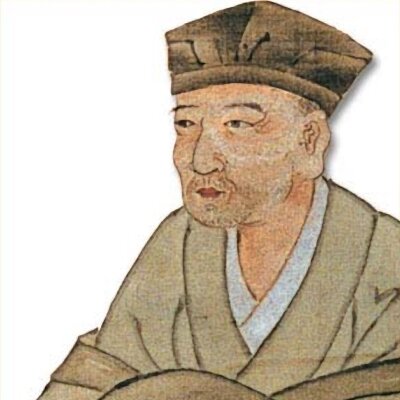
"The River" (excerpt) by Herman Hesse
I am only a ferryman and it is my task to take people across this river. I have taken thousands of people across and to all of them my river has been nothing but a hindrance on their journey. They have travelled for money and business, to weddings and on pilgrimages; the river has been in their way and the ferryman was there to take them quickly across the obstacle.

"When the Shoe Fits" by Chuang Tzu
Chu’i the draftsman
could draw more perfect circles freehand
than with a compass.
His fingers brought forth
spontaneous forms from nowhere.

"More Is Not Enough - The Stone Cutter " by Benjamin Hoff
There was once a stone cutter who was dissatisfied with himself and with his position in life. One day he passed a wealthy merchant's house. Through the open gateway, he saw many fine possessions and important visitors. "How powerful that merchant must be!" thought the stone cutter. He became very envious and wished that he could be like the merchant

“The Great Way” by Wu Men
Wumen Huikai (1183–1260) was a Zen Master most famous as the compiler of and commentator on the 48-koan collection The Gateless Gate (Japanese: Mumonkan.

"The Song of the Bird" — Anthony de Mello
The disciples were full of questions about God.
Said the Master, “God is Unknown, the Unknowable. Every statement about Him, every answer to your questions, is a distortion of the Truth.”
The disciples were bewildered. “Then why do you speak about Him at all?”

"The Empty Boat" by Chuang Tzu
Who can free himself of achievement and fame
Then descend and be lost
Amidst the masses of men?
He will flow like Tao, unseen…
He will go about like life itself,
With no name and no home.

“The Gates of Paradise " by Japanese Zen teacher Muju
A soldier named Nobushige came to Hakuin, and asked: "Is there really a paradise and a hell?"
"Who are you?" inquired Hakuin.
"I am a samurai," the warrior replied.
"You, a soldier!" exclaimed Hakuin. "What kind of ruler would have you as his guard? Your face looks like that of a beggar."

"RITUAL" — Zen Story
When the spiritual teacher and his disciples began their evening meditation, a cat who lived in the monastery made such noise that it distracted them…

"The Monk With Sweaty Palms" from A NEW EARTH by Eckhart Tolle
Kasan, a Zen teacher and monk, was to officiate at a funeral of a famous nobleman.
As he stood there waiting for the governor of the province and other lords and ladies to arrive, he noticed that the palms of his hands were sweaty.
The next day he called his disciples together and confessed he was not yet ready to be a true teacher.

Wisdom Story: “A Boy, A Rabbi and a Stone'“ — Unknown
"Once upon a time, a small Jewish boy went to his rabbi and said he didn't know how to love God. 'How can I love God when I've never seen him?' asked the boy. 'I think I understand how to love my mother, my father, my brother, my little sister, and even the people in our neighborhood, but I don't know how I'm supposed to love God.'

